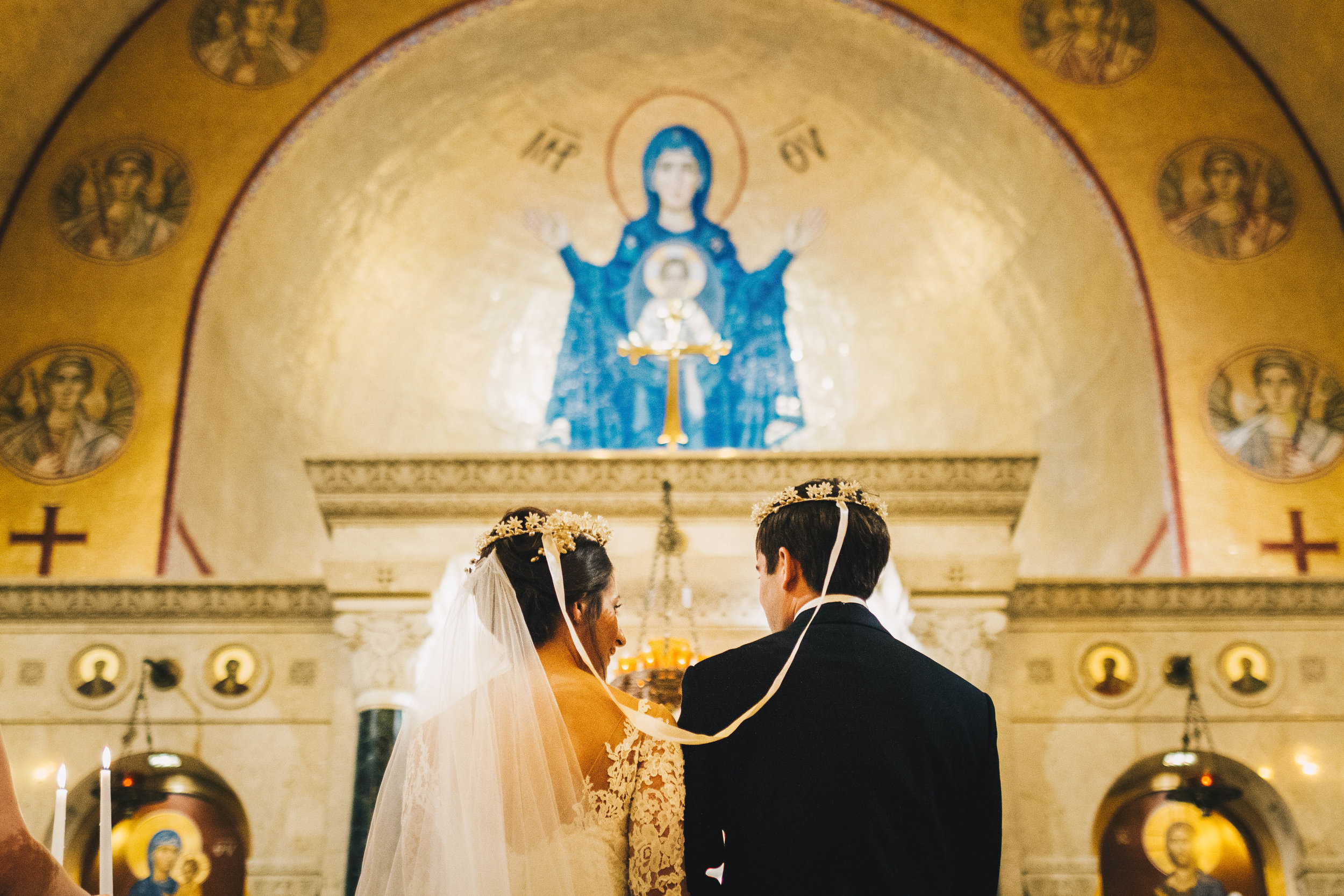A mother is an integral part of a young woman’s life when she is getting married. Regardless if the two are on good terms or not--whether the relationship is filled with intimate stories and laughter over a girls’ night or strained from wounds and incompatible temperaments--the mother-daughter relationship is emphasized during a transition to marriage.
I believe every mother longs to be close to her little girl as she moves from her parents’ protection to the loving shelter of a kind man. And I believe each young woman yearns for her mother’s support as she enters her new vocation.
I go back in my mind to a year ago when my daughter, Kate, and I were in the middle of reception detail planning and dress fittings. There was so much to decide upon, and of course, I was so excited to bring all my crafty talents to the table and make her storybook wedding a reality. At the same time, the shadow of grief from my mother’s death followed me as I hadn’t adequately processed the transition in my own mother-daughter relationship.
Kate and I often argued about wedding etiquette. More than once I heard, “Mom, people don’t do that anymore!” Eventually I responded, “Well, if I’m paying for it, I want it to be done well and be a classy event.”
The tension and anger were followed by apologies and compromises. The “Please, Mom, understand I want my wedding to be what I envision, not your vision,” was almost always answered with, “I understand, honey, but please don’t steal my joy in giving you something beautiful.” Despite our challenging conversations, we were able to come together to create a lovely and memorable day.
“Stealing joy” was an echo of my mother’s words from years prior--when I had denied her opinion and financial support in my own wedding preparations and newlywed life. I was the youngest of fourteen children, her eleventh daughter, and I shudder at the memory of my reaction to her efforts to help me.
The dual-perspective as both a daughter and a mother allows me to identify these offerings of help as a sincere gift. I wish I had been more gracious and hadn’t “stolen her joy.” Simultaneously, I can empathize with my daughter’s longing for independence and freedom in some of our conflicts of opinion.
I recognize the perspective as a young bride, unable to realize how much emotion a mother experiences as her daughter prepares for marriage. A mother’s emotional investment stretches beyond monetary costs, aesthetic details, and various other niceties. In her daughter’s wedding, a mother comes to terms with the reality that her young girl is becoming a woman, making decisions of her own, and preparing to leave home in order to cling to another. Such a transition is difficult.
When a woman first finds out she is having a baby girl, she holds close to her heart all the expectations of what kind of mother she will be to her little girl. She hopes to be a good example in femininity, holiness and motherhood, and to cultivate a true friendship that goes beyond being a mother and daughter. Every mother has expectations for her daughter, in what kind of woman she will become; as I look with love upon my daughter, I can honestly say she has always exceeded mine.
As a homeschooling family, I had been a long-term support to my daughter--and she to me. Yet, witnessing her maturation and growing independence through the college years was difficult. Though she became the lovely independent young woman and friend I had hoped for, there is an experience of grieving, of “losing” my little girl. Such a bittersweet transition is not easy.
My daughter’s wedding was truly a storybook wedding. I was touched by her and her fiance’s desire for the wedding to be a deeply sacred event. The afternoon of the Nuptial Mass was indeed a true expression of Faith which included she and her guy meeting our pastor to receive the Sacrament of Reconciliation minutes before they would line up with their bridal party in the back of the cathedral.
With the classic sacred music, stunning musicians, and reverence of the whole Mass, many tears of joy were shed that afternoon, however, surprisingly, I didn’t cry. In total peace, I looked upon my little girl all grown up, as she stood arm in arm with her new husband presenting, with love, her bouquet and entrusting their marriage to our Blessed Mother Mary. My own mother lived her life devoted to our Blessed Mother, so I imagine she was probably smiling down from heaven.
The fairy tale continued at a most exquisite reception venue with simple elegance planned into the details. The details were very personal from the place setting favors to the gorgeous dessert table spread of homemade pies and cheesecakes compliments of her sister-in-law, Abby and myself. My humble effort at making the wedding cake was a labor of love and satisfaction even if it was a bit crooked! From the Father-Daughter dance to “Isn’t She Lovely” by Stevie Wonder, and the Mother-Son dance to “What a Wonderful World” by Louis Armstrong,
all the joy was bit by bit healing my grief.
Everyone celebrated loudly, danced the night away and gathered under the stars sending off the happy couple under a shower of sparklers.
In the grieving of my little girl’s growing up and the grieving of my mother’s death, I lost my familiar positions in relation to the women who know me best. But in my loss, I gained a new level of intimacy with both my daughter and my mother, I gained a new perspective and compassion for how the mother-daughter relationship changes over time, and I gained the love of God to guide me, gently, through a major life transition with peace and joy.
I often think of my daughter and my mother, Edith, as my two closest friends. When I think of the virtues my holy mother possessed--strong love of God, His Blessed Mother and the Saints, humility and patience--I see those same virtues in my daughter; so my mother lives on.
My advice to the young ladies planning a wedding is to seek a better understanding of the gift you are to your mother, and that regardless of the state of your relationship with your mother at this time, know you are a gift from God to her. Your love and joy may help her grieve a loss, heal a wound, and grow in holiness.
To the mothers out there, I pray for grace for you to enter into a better friendship with your girl as she prepares for her vocation of wife and motherhood. Give her your time and love, but most importantly your prayers so she may glorify God with her new life--a life you helped to provide, and nourished the best you could.











































